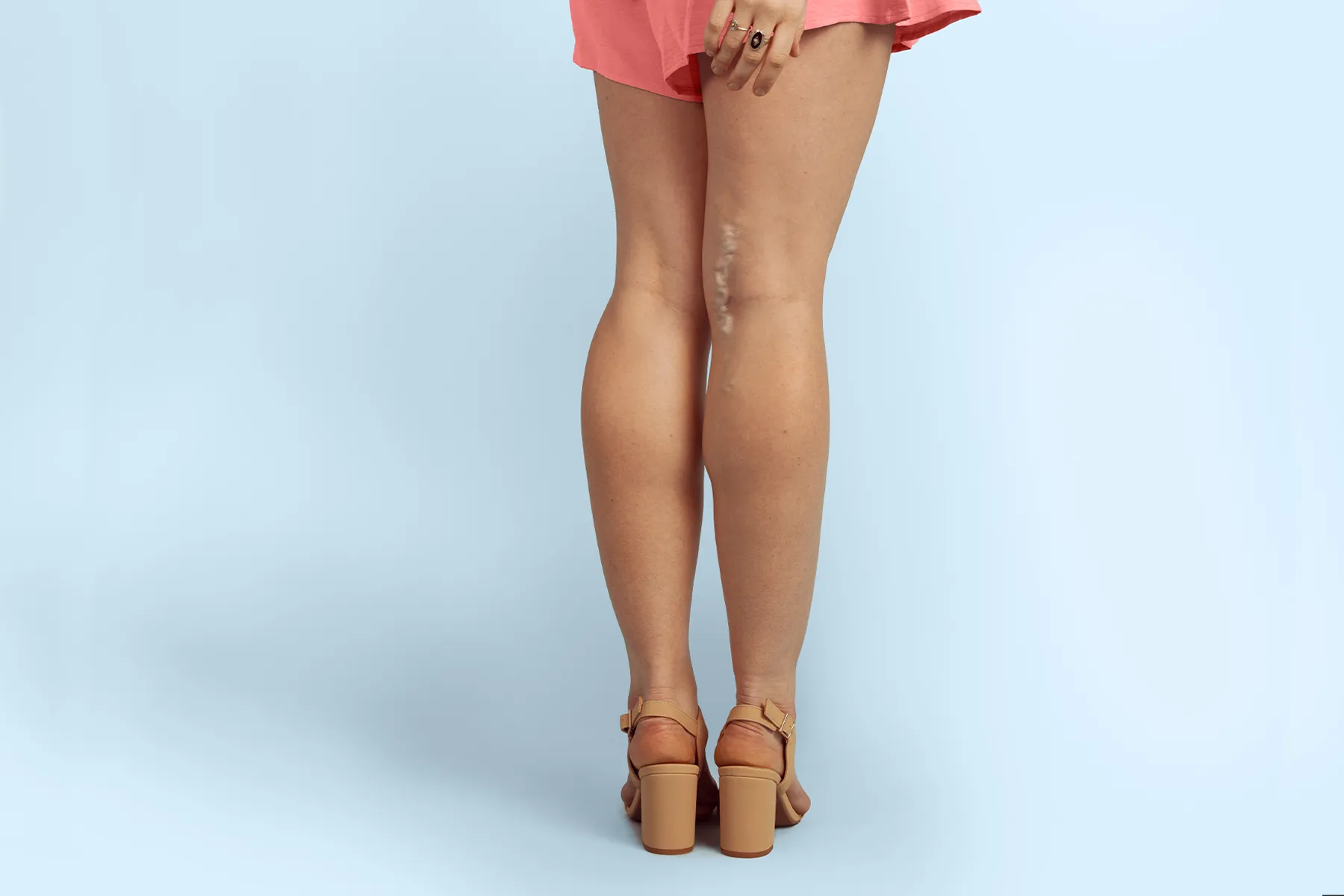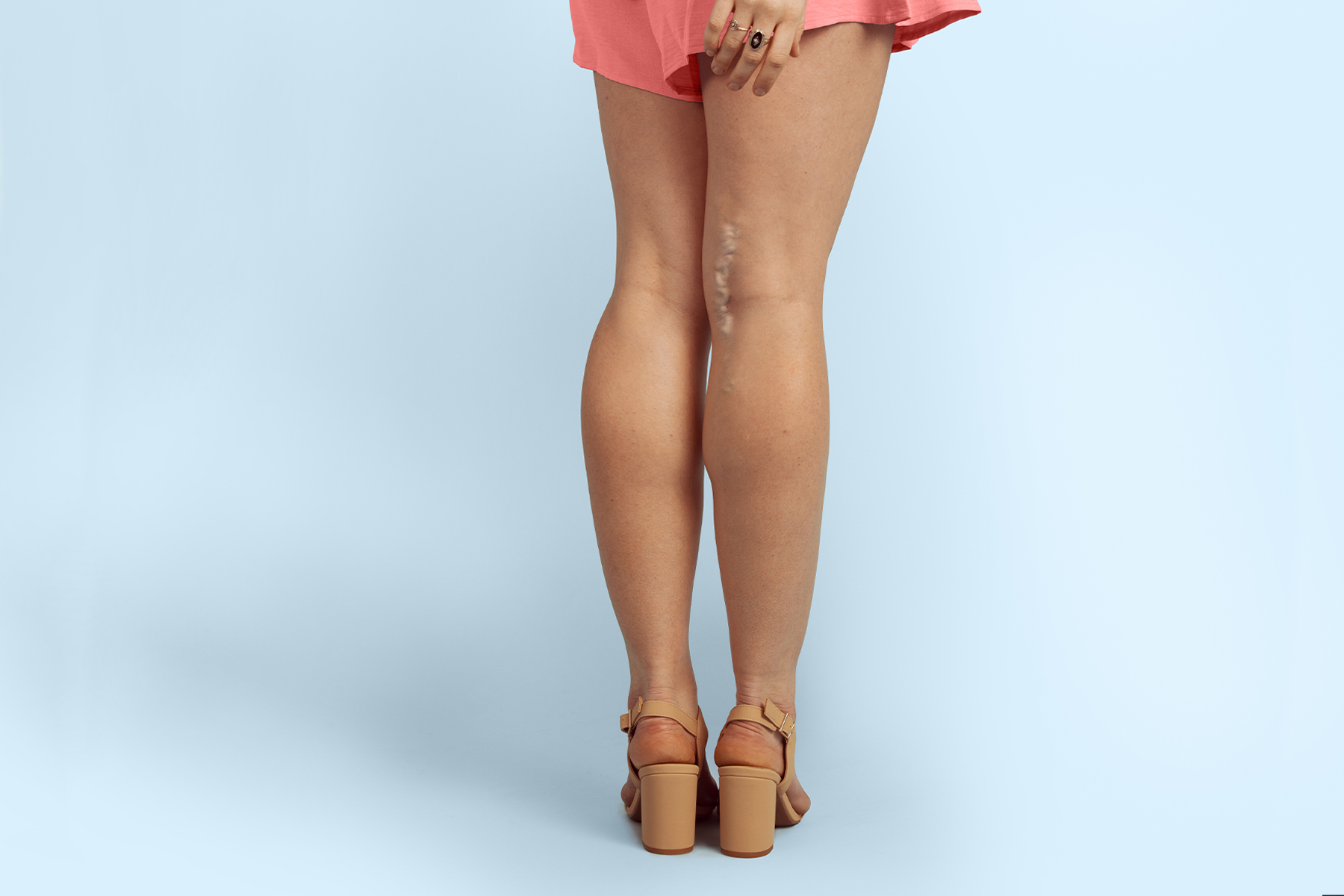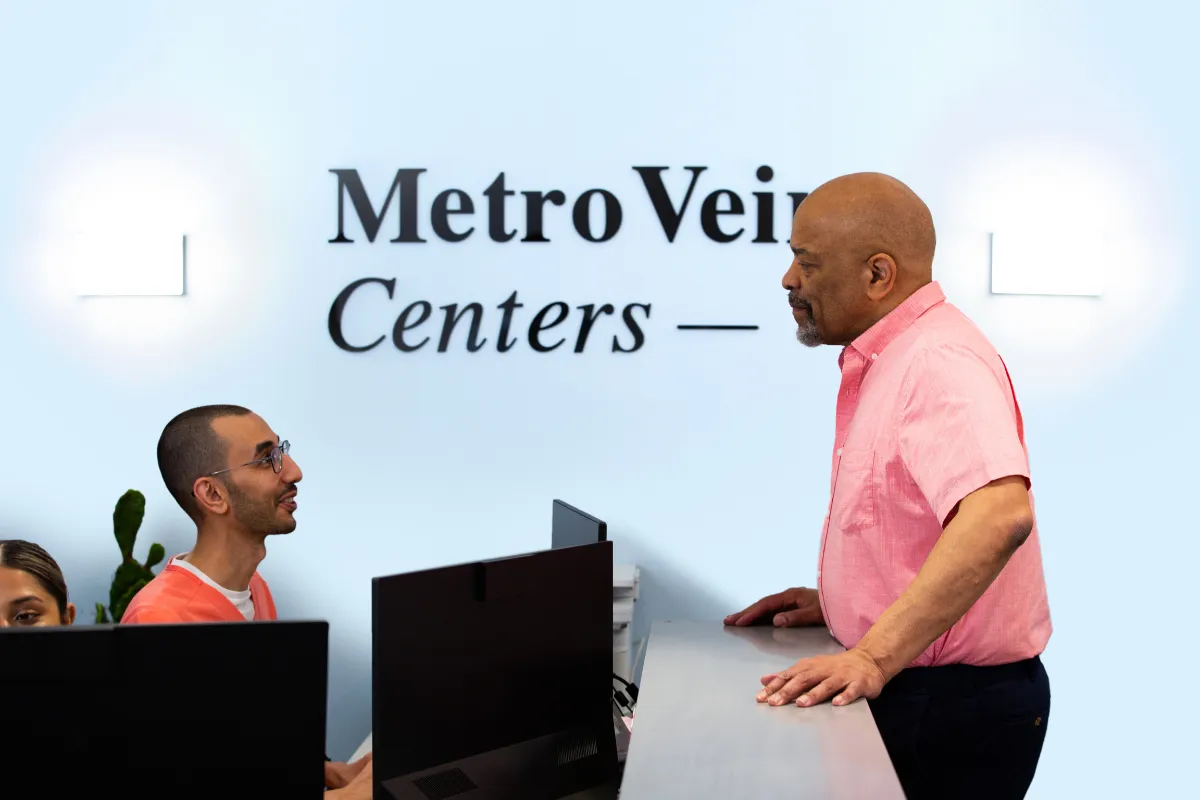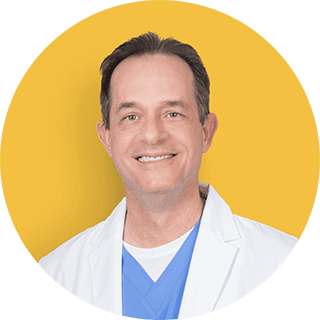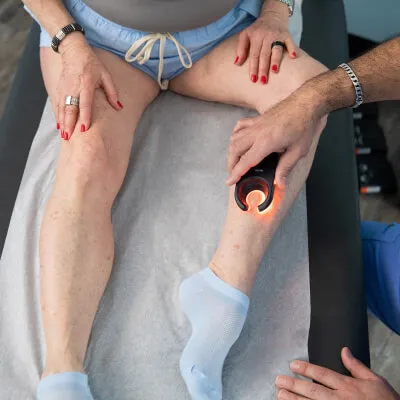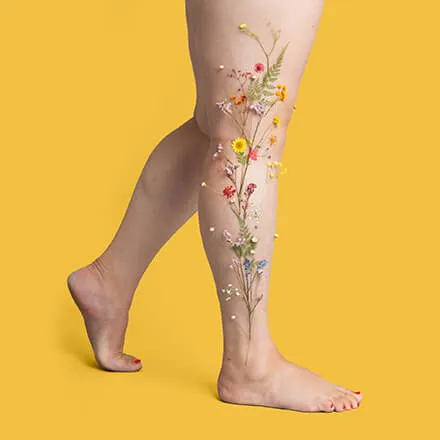Varicose veins are more than just a cosmetic concern. Those twisted, enlarged veins you see on your legs can be a warning sign for underlying issues that, if left untreated, might lead to more serious varicose vein complications.
Understanding the hidden risks of untreated varicose veins is key to making the best decisions for your long-term vascular health. Let's explore what you need to know to keep your legs healthy and happy.
Understanding Varicose Veins
Varicose veins develop when the valves in your veins weaken, making it difficult for blood to flow back to your heart. This causes blood to pool in your legs, leading to visible, bulging veins. Risk factors for varicose veins include genetics, age, obesity, prolonged standing or sitting, and pregnancy. Over time, these veins can worsen, causing discomfort and potentially leading to more severe conditions.
Hidden Health Risks
Varicose vein symptoms can worsen over time if they are not treated. Untreated varicose veins can lead to several complications, which have the potential to become dangerous:
Deep Vein Thrombosis (DVT): DVT is a condition where blood clots can form in the deep veins of your legs, causing pain and swelling. If a clot breaks loose, it can travel to your lungs, leading to a pulmonary embolism, a life-threatening condition.
Chronic Venous Insufficiency (CVI): CVI occurs when your veins struggle to send blood back to your heart, leading to leg swelling, pain, and skin changes.
Leg Ulcers: Circulatory issues can cause leg ulcers, which appear as open sores on your legs, which are slow to heal and prone to infection.
Blood Clots and Skin Changes: Untreated varicose veins can increase the risk of superficial thrombophlebitis (inflammation of a vein with a blood clot) and cause skin discoloration, itching, and hardening.
Varicose Veins and Impact on Overall Health
Beyond physical symptoms, untreated varicose veins can negatively impact your quality of life. Mobility can become limited due to pain and swelling, making everyday activities challenging. There is also some evidence pointing to a connection between varicose veins and cardiovascular health. If you have other risk factors for cardiovascular disease, this should be discussed with your vein doctor or other healthcare provider.
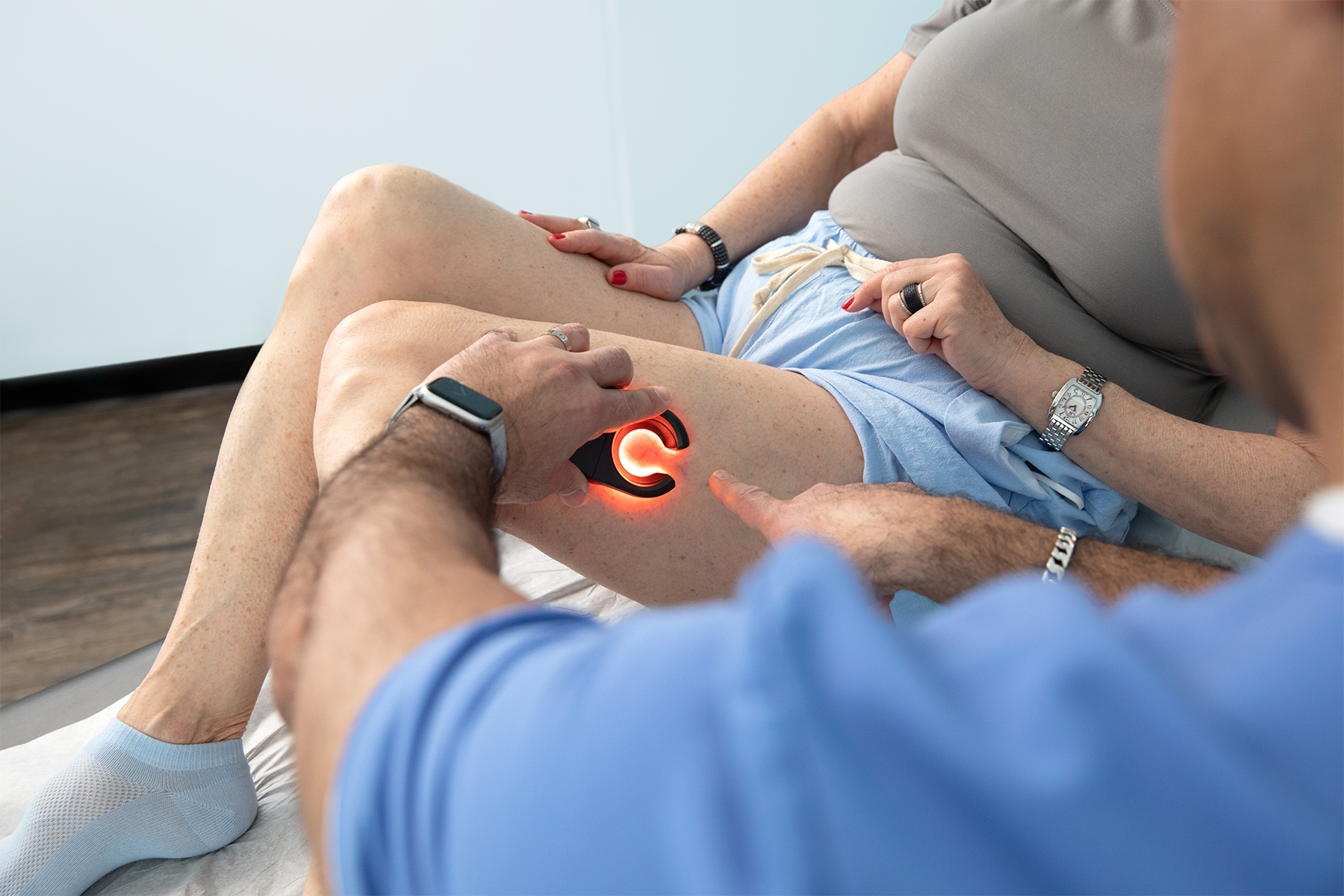
The Diagnostic Process
Early detection is key to preventing serious outcomes due to varicose veins. During a varicose vein evaluation, your doctor may use:
Ultrasound: This non-invasive test uses sound waves to visualize blood flow and identify clots.
Doppler Studies: This measures blood flow in your arteries and veins, helping to assess venous insufficiency.
Treatment Options
Fortunately, there are several effective treatment options for vein disease:
Conservative Measures: In mild stages, compression stockings, regular exercise, and maintaining a healthy weight can help manage the symptoms of varicose veins.
Minimally Invasive Procedures: For more advanced cases, sclerotherapy (injecting a solution to close the vein) and radiofrequency ablation are both excellent options.
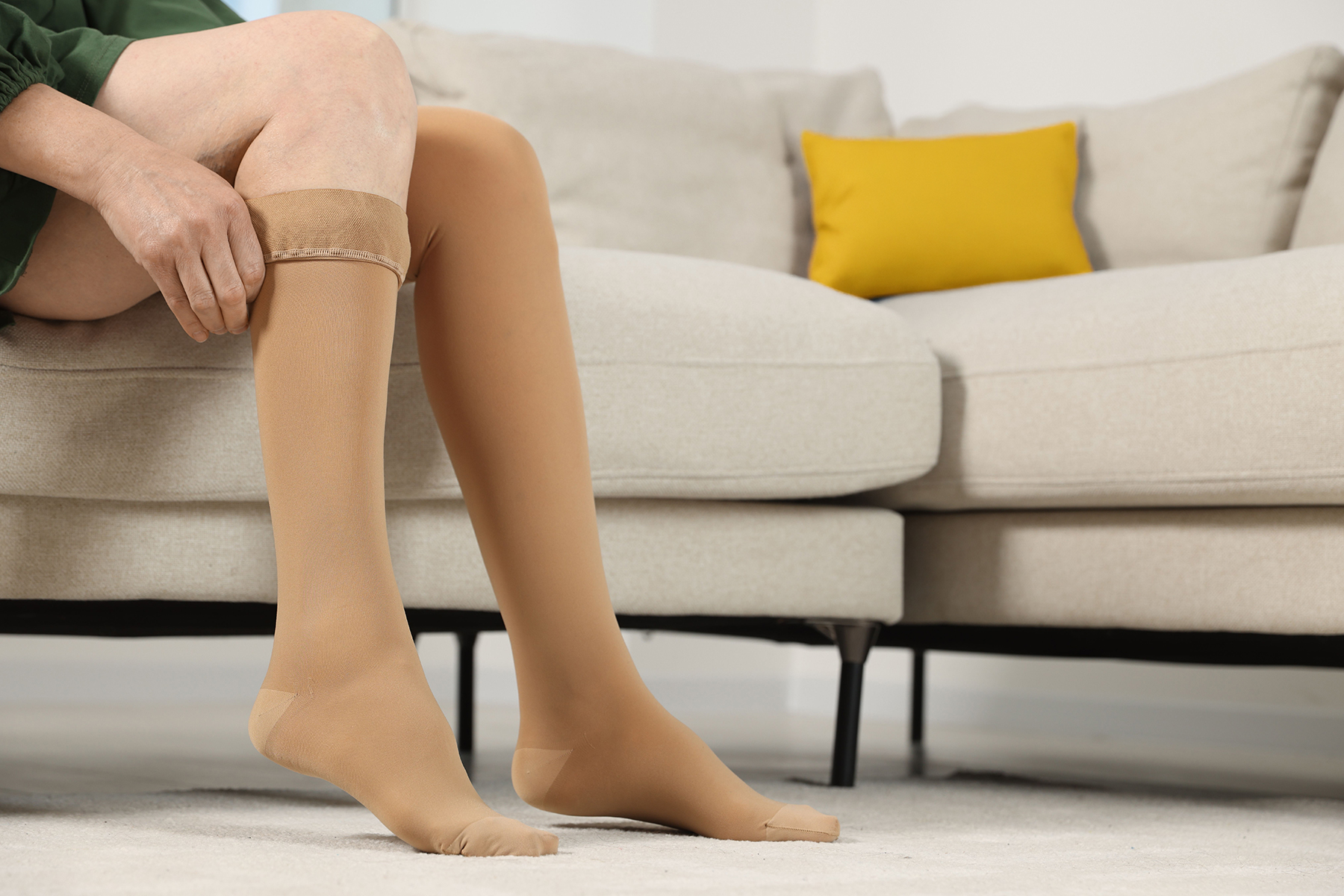
Prevention Strategies
Taking control of your vein health risks starts with prevention. Early intervention and regular check-ups can help you stay ahead of potential complications. Some tips for preventing varicose veins include:
Staying Active: Regular exercise improves circulation.
Maintaining a Healthy Weight: Excess weight puts pressure on your veins.
Elevating Your Legs: This helps reduce swelling.
Wearing Compression Stockings: Medical-grade compression socks help support your veins.
Scheduling Regular Check-Ups: Early intervention can prevent complications.
When to Seek Medical Attention for Varicose Veins
While some symptoms of varicose veins are mild, others signal it's time to seek medical advice. If you have any of these red flag symptoms, you will want to consult your vein specialist:
- Sudden or worsening pain or swelling
- Skin discoloration or itching
- Leg ulcers or open sores
- Bleeding
- Shortness of breath
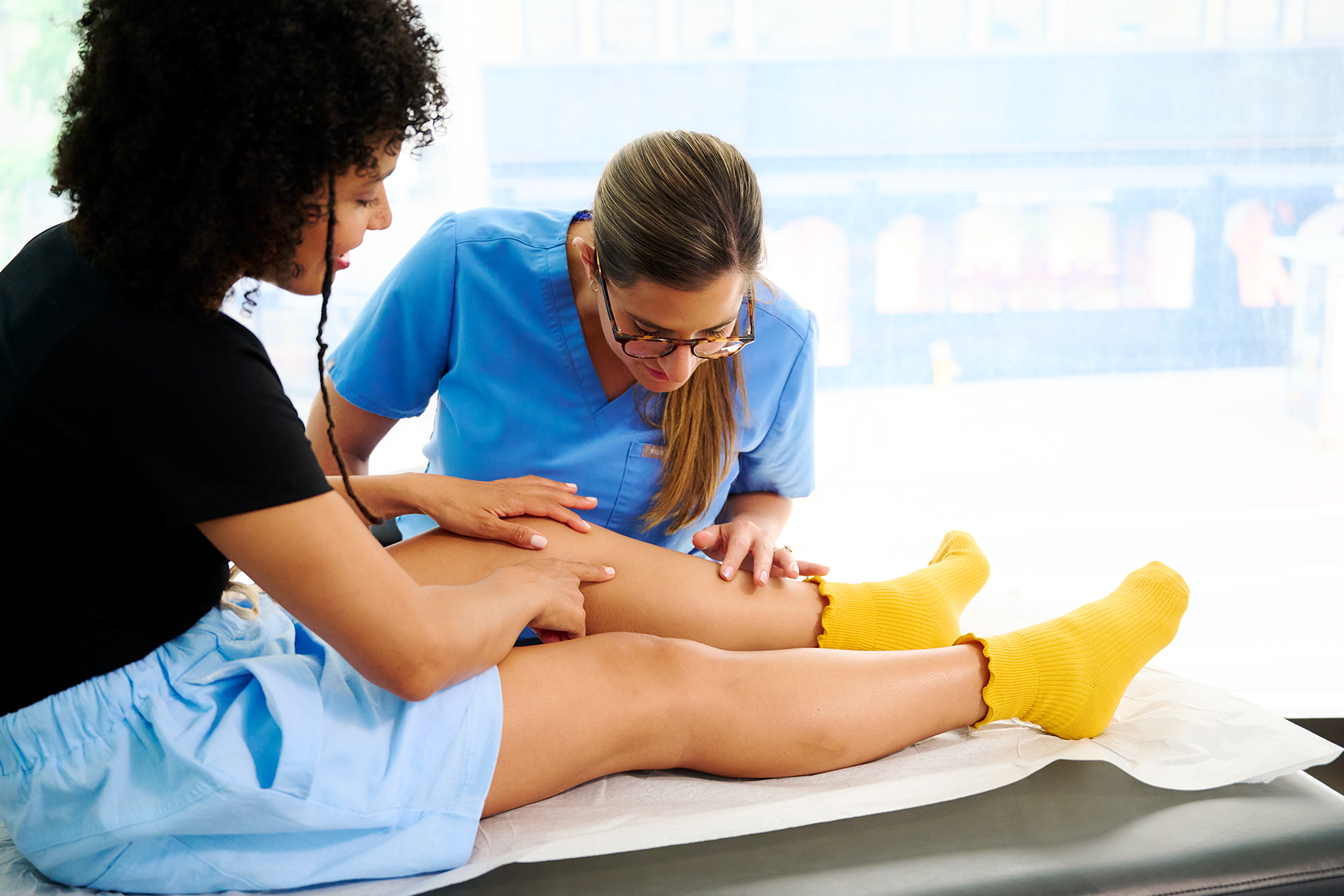
Conclusion and Key Takeaways
Varicose veins can be more than just a nuisance. If left untreated, they can lead to serious health risks. The only way to know if your symptoms could be a sign of worsening vein disease is to be evaluated by a vein specialist as soon as possible.
It's important to remember that although lifestyle changes can help manage and prevent complications due to varicose veins, a permanent cure requires medical treatment.
Don't wait until complications develop. Schedule a free consultation with our vein specialists today for a personalized evaluation and treatment plan.
Frequently Asked Questions
What serious complications can result from untreated varicose veins?
Complications due to the worsening of varicose veins can include DVT, CVI, leg ulcers, and skin changes.
How do untreated varicose veins increase the risk of deep vein thrombosis?
Varicose veins can cause blood to pool and clot in the enlarged veins.
What symptoms indicate that varicose veins are worsening?
Signs that your condition may be worsening include pain, swelling, skin discoloration, and ulcers.
Can lifestyle changes prevent the progression of varicose veins?
Yes, exercise, weight management, and compression stockings can help prevent the progression and recurrence of varicose veins, only an approved vein treatment can cure the condition.
What treatment options are available if complications arise?
Options to mediate complications of varicose veins include anticoagulants for DVT, wound care for ulcers, and sometimes surgical procedures for advanced cases.
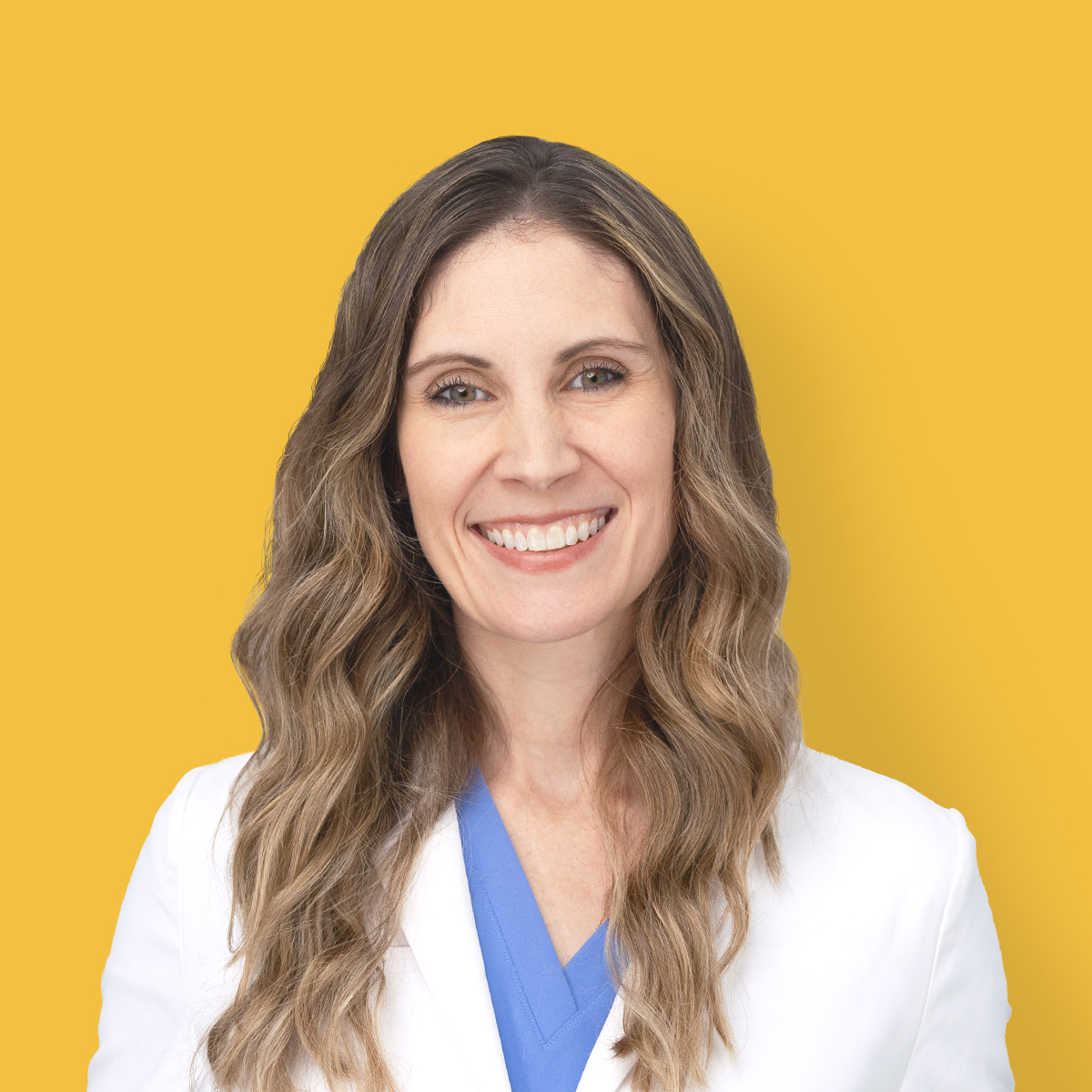
Dr. Katherine McGough
Meet Dr. Katherine McGough, DO, a highly-rated doctor specializing in the treatment of vein conditions. Schedule an appointment in Peoria, AZ today.
Meet Dr. Katherine McGough
Trusted insight from the nationally accredited, board-certified vein doctors at Metro Vein Centers.


